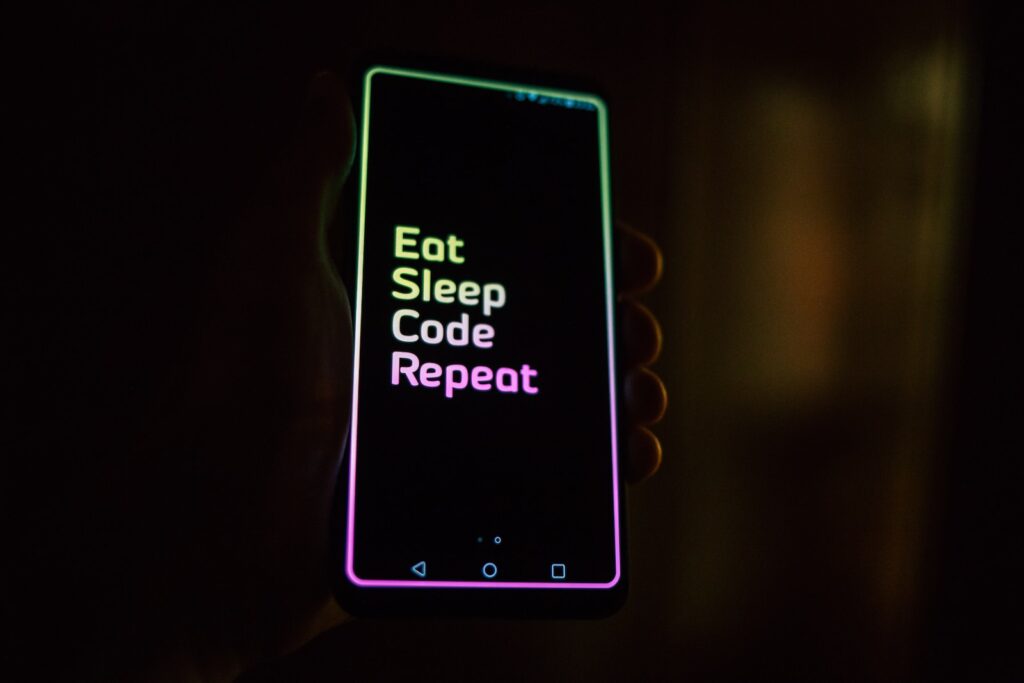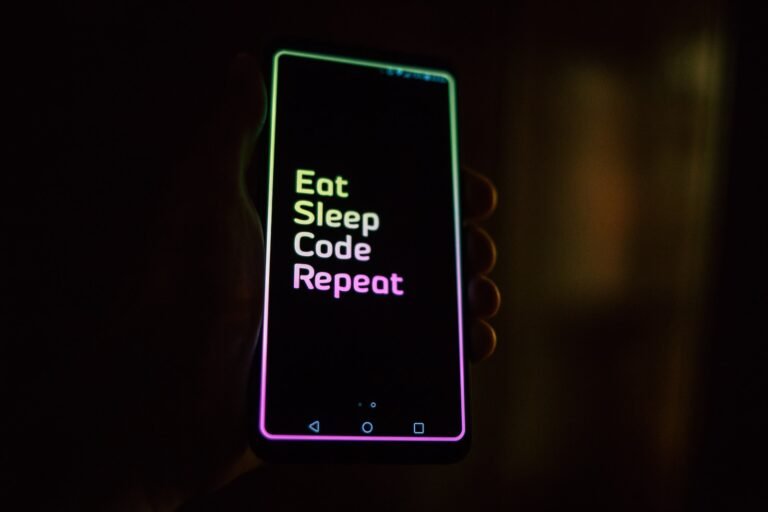Will AI replace programmers? AI is changing many fields, including programming. Some people worry that programming will become useless as AI gets better.
AI, on the other hand, is more likely to help coders than to replace them. In this age of AI, coders are still very important.
1. AI coding vs programmers
AI is great at automating tasks but not at coming up with new ideas
AI can automate coding jobs that are done over and over again, like finding bugs or writing short pieces of code. But AI doesn’t have the creativity of humans when it comes to writing complex code that needs intuition and critical thought.
AI still can’t do things like design big systems or come up with truly new ways to solve problems. AI is good at improving and iterating, but people are needed to set the creative goal.
2. AI still needs to be supervised by people
AI can write code, but it still needs to be supervised by a person. Programmers are in charge of AI systems and must set goals and check results.
For instance, code written by AI often isn’t efficient or safe. People have to look over AI code to find mistakes, improve speed, and find weak spots.
3. New jobs for programmers who work with AI
As AI takes over jobs that are done over and over, programmers will move into roles like
- Watching over and directing AI systems
- Using AI tools to speed up work processes
- Putting an emphasis on complicated building and design
- Using human knowledge to solve hard problems
- Making sure strong security, speed, and new ideas
AI won’t be a rival for programmers; instead, AI will be used to boost efficiency.
4. Domain knowledge is still very important
AI can write code, but it doesn’t have the human domain knowledge that humans do. To do their jobs, programmers need to know things like
- Knowledge of the business and industry
- Skilled intuition gained through life
- Understanding how larger systems work together
- Being aware of risks and trade-offs in the long term
These big ideas are hard for AI to understand but necessary for good code.
5. People will need new skills as AI changes
To get the most out of AI, writers should learn things like
- Making and improving AI algorithms
- Making sure algorithms are fair and moral
- Looking at data to train AI
- Testing and making sure AI tools work
- Clear communication of AI goals
It will still be important for programmers to learn how to use AI as a tool.
6. People and AI work better together
To sum up, AI won’t take the place of coders. AI is great at doing specific jobs, but people are better at being creative, intuitive, and knowledgeable. They work much better together to spark new ideas. AI will improve the quality, efficiency, and powers of programming by working with programmers.
7. In Summary
- AI is great at narrow automation, but it’s not as creative as humans when it comes to writing complicated code.
- Programmers are still needed for oversight, knowledge, and new ideas.
- AI will not replace coders as a way to get work done; it will work with them.
- Programmers can focus on more important tasks if they learn how to work with AI.
- The future goes to programmers who can learn how to use new AI features.
“Don’t Learn to Code, But Study This Instead…” says NVIDIA CEO Jensen Huang
Based on the YouTube video transcription, here are the detailed highlights in bullet points with relevant sub-headings:
I. Introduction
- NVIDIA CEO Jensen Huang suggests kids should study biology and life sciences instead of computer science or programming.
- This goes against the popular advice of learning to code and study computer science.
II. AI and Prompt Engineering
- Prompt engineering is becoming the new “programming language” due to AI advancements.
- AI models like Copilot use techniques like grounding, preprocessing, and post-processing to improve prompts and generate better responses.
- AI is becoming more accessible to everyone, bridging the technology divide.
- However, over-optimization of AI models can sometimes lead to undesirable results (e.g., Google’s Gemini refusing to generate white people).
III. The Future of Programming
- Sam Altman believes coding will still be important in the future but will change significantly.
- Understanding the fundamentals of how computers work and problem-solving skills will remain valuable.
- There is a spectrum of opinions on the importance of programming vs. prompt engineering.
IV. Domain Expertise and AI
- Having domain expertise and using specific language is crucial for effective prompting and steering AI models.
- Domain experts can better explain problems, provide clear instructions, and detect hallucinations.
V. Jensen Huang’s Advice
- If starting over, Jensen Huang would study biology and human life sciences.
- He believes the future is in “life engineering” and “digital biology” rather than just scientific discovery.
- Engineering fields like computer science and software improve consistently each year, but life sciences are sporadic.
- Huang hopes to inspire a generation to study and engineer in fields like proteins, chemicals, enzymes, and materials for energy efficiency, sustainability, and more.
VI. Learning AI and Prompt Engineering
- For those interested in AI and prompt engineering, explore resources online and learn together with others.
- Recommendation to check out Uplimit courses on AI, chatGPT, and more.
- Encouragement to share experiences and approaches to programming, prompt engineering, and learning in 2023 and 2024.
Important Stats/Facts:
- Synthminds, a full-service AI agency, has trained and taught close to 20,000 people.
- They have developed AI educational material for universities like Stanford and
- Current state of AI programmers:
- Can solve tasks for junior developers (e.g., fixing HTML tags, small bugs)
- Struggle with complex systems (e.g., building scalable backend systems)
- Performance on SWE-Bench (programming benchmark) is at 14%, below human performance
- Historical context:
- Comparison to ImageNet’s impact on deep learning in 2012
- SWE-Bench as a potential turning point for AI programming
- Debate on Jensen Huang’s statement about not needing to learn programming:
- Counterargument: Learning to code makes people smarter
- Evidence: LLMs learn logical thinking by reading code on GitHub
- Potential impact on software companies:
- Possibility of unicorn companies with only 10 employees
- Reference to Sam Altman’s comment on future unicorns having fewer employees
- Historical examples of small teams creating high-value companies:
- Instagram (bought for $1 billion with ~20 employees)
- WhatsApp (bought for $13 billion with ~50 employees)
- Perspectives on company size:
- Experienced founders often prefer smaller teams
- Engineers may prefer smaller teams due to management preferences
- Some founders grow into leading larger teams (e.g., Patrick Collison of Stripe)
- Challenges of managing large companies:
- Difficulty in enforcing direction with 1000+ employees
- Transition from “family” mentality to “sports team” analogy for company culture
- Impact of AI on programming and startups:
- May not necessarily lead to smaller companies (Jevons paradox)
- Could increase demand for programming skills
- May lower barriers to entry for starting companies
- Future predictions:
- Potential for more unicorn companies
- Possibility of thousands of billion-dollar companies rather than a few trillion-dollar ones
- AI may enable more people to turn ideas into early-stage products
- Consensus:
- Learning to code remains important despite AI advancements
- Good taste in building products comes from studying engineering and computer science
- AI will likely accelerate the trend of more unicorns being created each year
- Key takeaway:
- The future will be built by “craftspeople” who combine programming skills with creativity and problem-solving abilities
- Blog post speculates on changes in software development jobs
- Author claims a bad year to be a junior developer
- Compares situation to horror movie themes
- Law Firm Example:
- 50-person law firm experiencing crisis due to ChatGPT
- Firm structure, compensation, succession planning in existential crisis
- AI potentially replacing junior associates’ work
- Senior lawyers now mainly create prompts and review AI-generated work
- AI can produce research summaries, briefs, contracts, memos, pleadings, petitions
- Writing and Editing Jobs:
- Similar trends affecting writing and editorial positions
- Senior writers becoming “prompt engineers”
- Example of author using Claude Opus to write 7,500-word narrative in 90 minutes
- Estimated 2-3x faster writing process using AI
- Data Science Impact:
- AI classifier and multiclass prediction model created in one day
- Task previously a 6-week university senior-level intern project
- Programming Changes:
- Some programmers now consider themselves “reviewers, coaches, and nannies”
- ChatGPT doing most of the coding work
- “Chat-first programming” becoming a new trend
- AI Model Improvements:
- ChatGPT-4 released in mid-May, significantly improving AI coding capabilities
- Can edit 1000-line source files with high precision
- Google Gemini and Claude 3 Opus also showing similar capabilities
- New Programming Approach:
- “Chat-oriented programming” (CHOP) emerging as a new phenomenon
- Involves explaining situations to AI in written language
- Merging AI-generated output back into codebase
- AI Coding Assistants:
- Mentions Cody as an example of improved AI coding assistant
- Automated context assembly engine saves time in explaining codebase
- Criticisms and Concerns:
- Video creator expresses strong disappointment in the article
- Feels it’s discouraging to aspiring junior engineers
- Describes the article as “gatekeeping” and stealing hope from newcomers
- Final Thoughts:
- Video creator encourages viewers not to be discouraged by such articles
- Emphasizes the importance of passion and persistence in software development
8. Faqs: Will AI replace programmers
A: AI won’t be able to fully replace humans for a while yet. AI doesn’t have the human imagination, intuition, oversight, and knowledge that are necessary to program well.
A: Programmers shouldn’t worry that AI will take away all their jobs. AI will take care of boring jobs automatically, so programmers can work on more important tasks. There will always be a need for programmers who know how to use AI tools.
A: AI can automatically write simple programs, find bugs, suggest ways to make the code better, estimate deadlines, and make code snippets. But AI can’t yet build complicated systems or come up with new ideas.
A: Programmers should learn how to do things like analyze data, build AI, create algorithms, think about ethics, test their work, and explain technical ideas to others. Adaptability will help writers do well as AI gets better.
A: AI probably won’t be smarter than humans in the broad sense that’s needed for programming. AI can match some narrow human skills, but it can’t match human strengths like intuition and imagination. AI and people work best when they work together.







